This paper draws on district interviews and meeting observations to understand (1) the accountability, organizational, and instructional context for benchmark assessments in Philadelphia and how they compare with national trends; (2) the district’s expectations concerning benchmark assessment use; (3) the supports provided by the district and private providers for benchmark assessment use and instructional improvement; and (4) the challenges to meeting district expectations for use. Our research indicates that Philadelphia leaders expected that benchmark assessments would help teachers adjust and improve instruction. The six-week cycle of benchmarks was designed to enhance their formative use. It is our assessment that the six-week instructional cycle does enhance the benchmark’s formative use, and that the tools (SchoolNet, protocols for analysis and reflection, professional development, etc.) have provided a useful set of supports for school-based educators. Nevertheless, challenges, including misalignments between the benchmarks and the core curriculum, lack of resources and questions about how to support teachers, remain. Finally, our literature review highlighted the distinction between summative, interim, and formative assessments, including how they are used and experienced. The Philadelphia case demonstrates that even formative assessments can become summative in settings in which people are differently positioned vis a vis power and authority and in an overall environment of high-stakes accountability.Download PDF: Consortium for Policy Research in Education
Building with Benchmarks: The Role of the District in Philadelphia’s Benchmark Assessment System
Related Publications
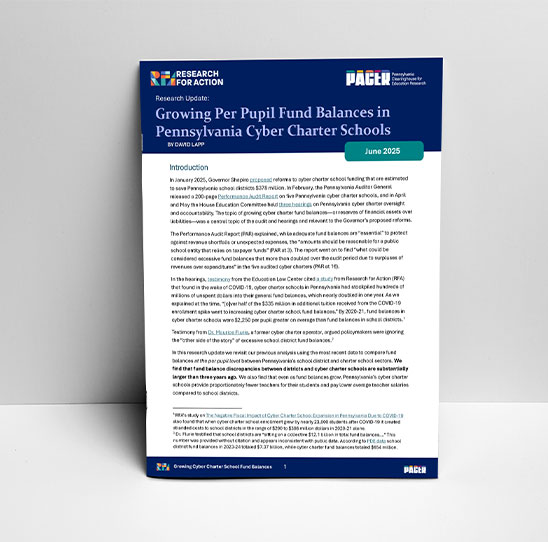
Publication
Growing Per Pupil Fund Balances in Pennsylvania Cyber Charter Schools
David Lapp
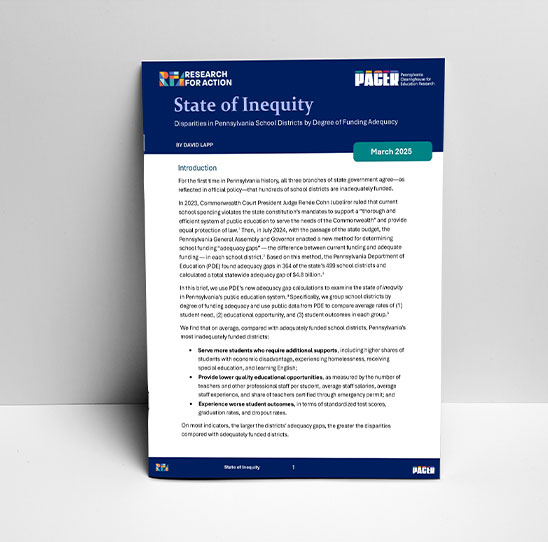
Publication
State of Inequity: Disparities in Pennsylvania School Districts by Degree of Funding Adequacy
David Lapp

Publication
Patterns of Student Mobility Among English Learner Students in Public High Schools in Philadelphia
Lindsey Liu, Sean Vannata
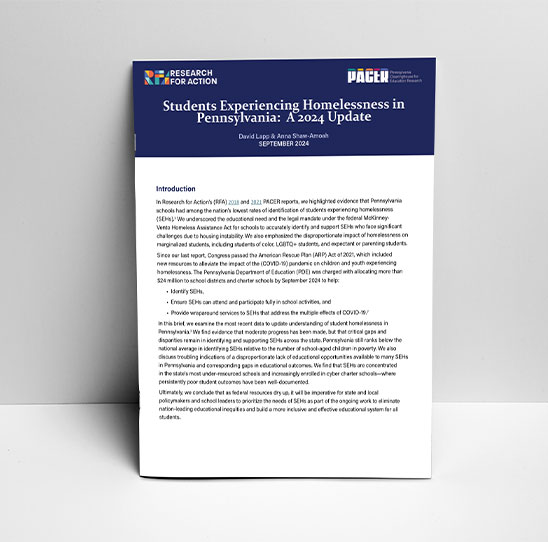
Publication
Students Experiencing Homelessness in Pennsylvania: A 2024 Update
David Lapp, Anna Shaw-Amoah

Publication
Small but Mighty: Lessons from Black Teachers’ Experiences in Allegheny County
Siettah Parks, Kevin Burgess, Leana Cabral, Mary Eddins, Alita Robinson
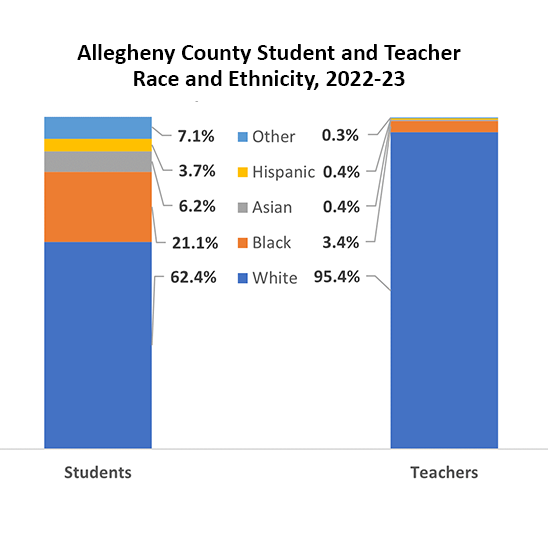
Publication
Allegheny County Teacher and Student Demographics: 2022-23 Update
Mary Eddins, David Lapp, Anna Shaw-Amoah

Publication
Exploring the Diversity and Supports for School District of Philadelphia English Learners as they Prepare to Transition to High School
David Bamat, Sean Vannata, Lindsey Liu, Molly Schlesinger, Alyn Turner

Publication
The Need for More Teachers of Color
Leana Cabral, Mary Eddins, David Lapp, Saxon Nelson

Publication
FAQ: Superintendents in Pennsylvania School Districts
Mary Eddins, Leana Cabral, David Lapp, Molly Pileggi, Saxon Nelson, Ammani Ahmad-Khan
Publication
Access to Experienced Teachers in Allegheny County
Mary Eddins
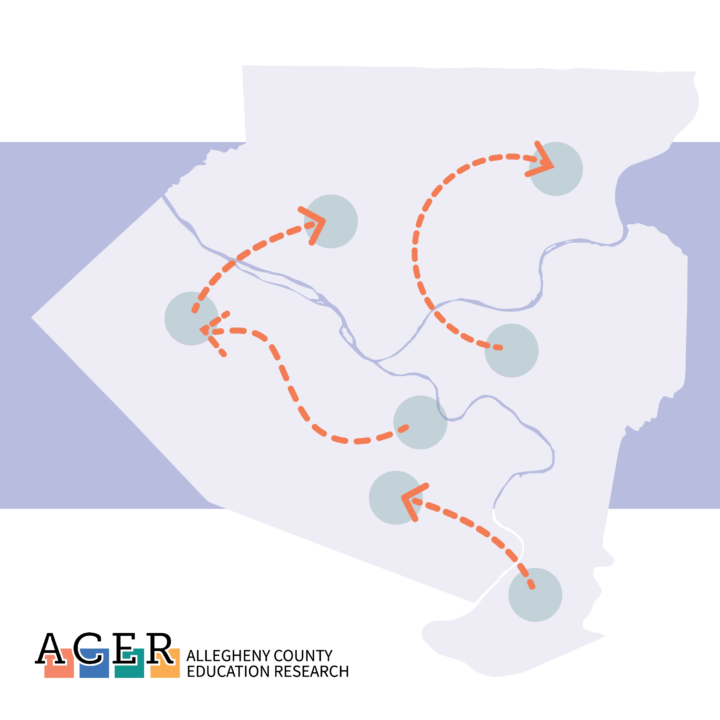
Publication
Teacher Mobility in Allegheny County, 2014-15 through 2019-20
Mary Eddins, Molly Pileggi

Publication